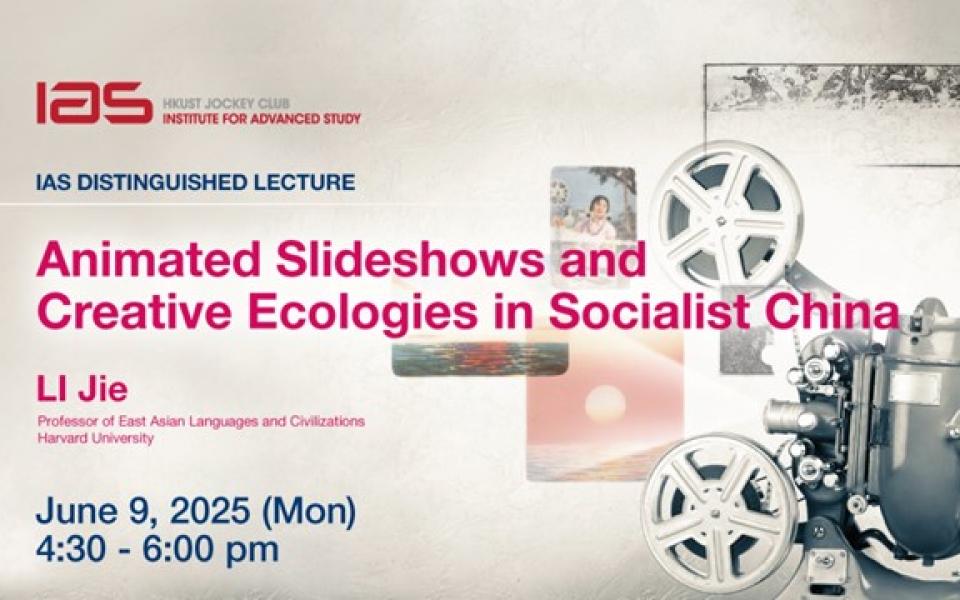IAS Distinguished Lecture - Animated Slideshows and Creative Ecologies in Socialist China
Supporting the below United Nations Sustainable Development Goals:支持以下聯合國可持續發展目標:支持以下联合国可持续发展目标:
Abstract
From the 1950s to the 1980s, lantern slideshows, dubbed “rustic cinema” (tu dianying), were deployed as an important form of local propaganda and entertainment. Technically simple to produce from cheap and locally available materials, lanternslides could be projected using gas lamps without electricity. Local propaganda artists and film projectionists thus wrote, drew, projected, and narrated their own slideshows, often featuring local heroes and local histories, thereby enabling the creation of local media content when film production was centrally orchestrated.
Whereas rural audiences celebrated cinema for being “live” or “animated” (huo de) and slideshows for being “still” or “dead” (si de), innovative experimentation with slideshow animations launched a “Three Sisters Projection Team” from a rural county to nationwide fame by the mid-1960s. This projection team invented a slide projector with multiple lenses to create illusions of movement - such as red flags waving, horses running, and masses celebrating - to the sound accompaniment of clapper talk with rhyming verses. To emulate such animated slideshows, local cadres around the country recruited grassroots artists, writers, performers, and technicians to participate in propaganda endeavors over the next two decades.
Through a media archeology of animated slideshows, this talk seeks to excavate the creative ecology of Socialist China as well as to reflect on human creativity in the age of generative AI. This talk will show how propaganda, censorship, and technology promoted or stifled, mobilized or immobilized creativity through their complex interactions with talent, skill, economics, politics, and institutions.
About the Speaker
Prof. LI Jie earned her BA in East Asian Studies at Harvard University, and studied English literature at the University of Cambridge and German literature at the University of Heidelberg before returning to Harvard for a PhD, earned in 2010, in modern Chinese literature and film studies. In 2012-2013, she was a Cotsen Postdoctoral Fellow at the Society of Fellows in the Liberal Arts of Princeton University. She moved back to Harvard in 2013 and is currently a Professor of East Asian Languages and Civilizations. In 2024, she was named a Harvard College Professor for her contributions to undergraduate teaching and a Walter Channing Cabot Fellow for scholarly eminence in the fields of literature, history, or art.
Prof. Li’s research interests center on the mediation of memories in modern China. She is the author of Shanghai Homes: Palimpsests of Private Life, Utopian Ruins: A Memorial Museum of the Mao Era, and Cinematic Guerrillas: Propaganda, Projectionists, and Audiences in Socialist China, which won the 2024 Kraszna-Krausz Moving Image Book Award from the Kraszna-Krausz Foundation, the 2025 Katherine Singer Kovács Book Award from the Society for Cinema and Media Studies, and 2025 Honorable Mention for the Joseph Levenson Book Prize from the Association of Asian Studies. She also co-edited the volume Red Legacies in China: Cultural Afterlives of the Communist Revolution and published various articles on film, media, museum, and sound studies.
For Attendees' Attention
Seating is on a first come, first served basis.
